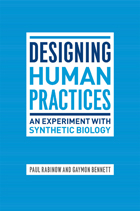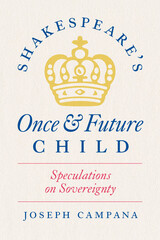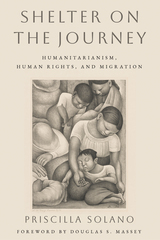
In 2006 anthropologists Paul Rabinow and Gaymon Bennett set out to rethink the role that human sciences play in biological research, creating the Human Practices division of the Synthetic Biology Engineering Research Center—a facility established to create design standards for the engineering of new enzymes, genetic circuits, cells, and other biological entities—to formulate a new approach to the ethical, security, and philosophical considerations of controversial biological work. They sought not simply to act as watchdogs but to integrate the biosciences with their own discipline in a more fundamentally interdependent way, inventing a new, dynamic, and experimental anthropology that they could bring to bear on the center’s biological research.
Designing Human Practices is a detailed account of this anthropological experiment and, ultimately, its rejection. It provides new insights into the possibilities and limitations of collaboration, and diagnoses the micro-politics which effectively constrained the potential for mutual scientific flourishing. Synthesizing multiple disciplines, including biology, genetics, anthropology, and philosophy, alongside a thorough examination of funding entities such as the National Science Foundation, Designing Human Practices pushes the social study of science into new and provocative territory, utilizing a real-world experience as a springboard for timely reflections on how the human and life sciences can and should transform each other.

Discussions and debates over the medical use of stem cells and cloning have always had a religious component. But there are many different religious voices. This anthology on how religious perspectives can inform the difficult issues of stem cell research and human cloning is essential to the discussion. Contributors reflect the spectrum of Christian responses, from liberal Protestant to evangelical to Roman Catholic. The noted moral philosopher, Laurie Zoloth, offers a Jewish approach to cloning, and Sondra Wheeler contributes her perspective on both Jewish and Christian understandings of embryonic stem cell research.
In addition to the discussions found here, God and the Embryo includes a series of official statements on stem cell research and cloning from religious bodies, including the Roman Catholic Church, the Orthodox Church in America, the United Methodist Church, the Southern Baptist Convention, the United Church of Christ, the Presbyterian Church (USA), and the Union of Orthodox Jewish Congregations of America and the Rabbinical Council of America. "Human Cloning and Human Dignity: An Ethical Inquiry," from the statement of the President's Council on Bioethics, concludes the book.
The debates and the discussions will continue, but for anyone interested in the nuances of religious perspectives that make their important contributions to these ethically challenging and important dialectics, God and the Embryo is an invaluable resource.
READERS
Browse our collection.
PUBLISHERS
See BiblioVault's publisher services.
STUDENT SERVICES
Files for college accessibility offices.
UChicago Accessibility Resources
home | accessibility | search | about | contact us
BiblioVault ® 2001 - 2024
The University of Chicago Press









